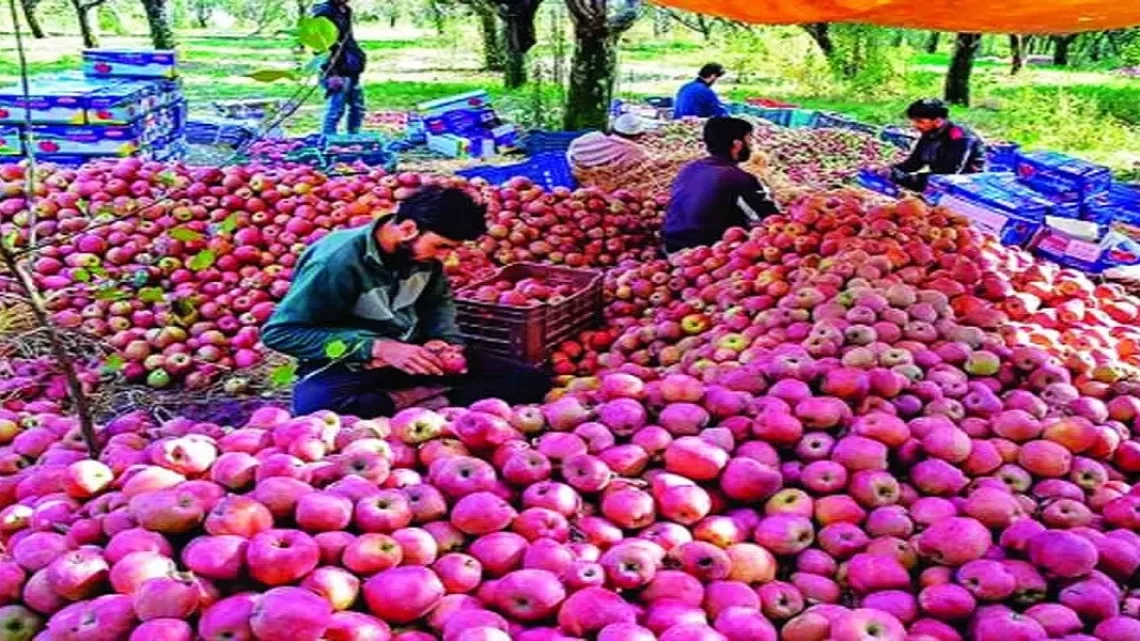
Resistance Mounts Against Railway Expansion in Kashmir’s Apple Belt
March 15, 2024 Off By Sharp MediaIn Indian illegally occupied Jammu and Kashmir (IIOJK), political parties have united with Kashmiri fruit growers to oppose a railway survey conducted in the apple-rich region of Shopian. The Indian Railways recently authorized the final location survey for five railway lines, including the doubling of existing lines and the establishment of new ones. These proposed expansions cover significant distances, raising concerns among farmers about the potential loss of their orchards.
According to reports, the proposed railway lines include the doubling of the Baramulla-Banihal section (135.5 km), Baramulla-Uri (50 km), Sopore-Kupwara (33.7 km), Awantipora-Shopian (27.6 km), and Islamabad-Bijbehara-Pahalgam (77.5 km). However, farmers in the region, whose livelihoods heavily rely on apple cultivation, fear the repercussions of these expansions on their economic activities.
For many farmers, apple orchards constitute their sole source of income. They fear that the implementation of the railway lines would disrupt their livelihoods and lead to substantial financial losses. The People’s Democratic Party (PDP) president, Mehbooba Mufti, has called on the government to exercise caution and prioritize consultation with environmental experts before proceeding with such projects. She emphasized the importance of ensuring that developmental initiatives do not infringe upon the interests of local communities.
Mehbooba Mufti warned of severe consequences if the railway expansions were carried out in a haphazard manner without due consideration for the concerns of the affected populace. Similarly, Muhammad Yousuf Tarigami, a leader of the CPI (M), highlighted the apprehensions among residents of the Zainapora area, stressing that the railway survey has instilled fear among locals regarding the security of their livelihoods. Tarigami urged authorities to conduct the survey responsibly, minimizing potential adverse effects on the livelihoods of residents.
The National Conference also voiced opposition to the planned acquisition of land, particularly apple orchards, for the railway project in Shopian. They emphasized the need for developmental projects to take into account the concerns of local communities and prioritize their interests.
The resistance against the railway expansion in Kashmir’s apple belt underscores the delicate balance between development initiatives and the preservation of local livelihoods and environmental resources. While infrastructure projects are crucial for economic growth, they must not come at the expense of marginalized communities and ecological sustainability. The government’s response to these concerns will be closely scrutinized, as it reflects its commitment to inclusive development and environmental stewardship in the region.

